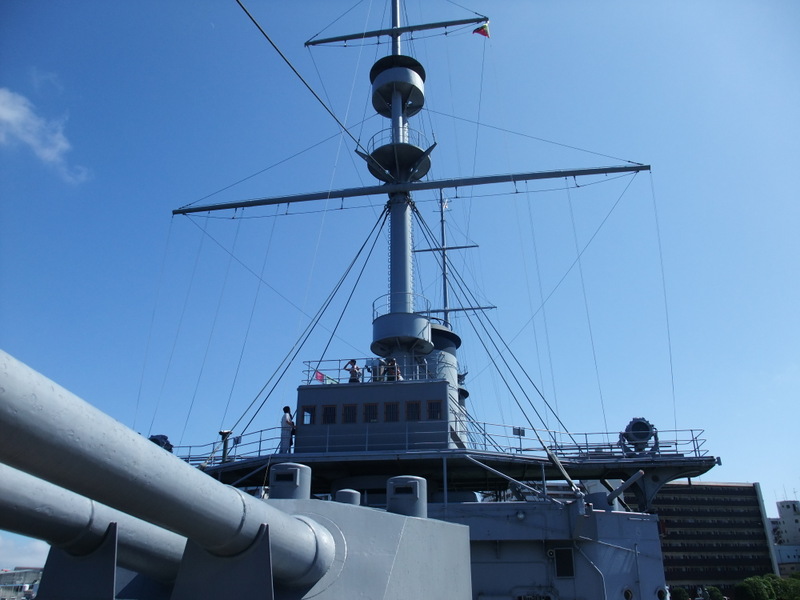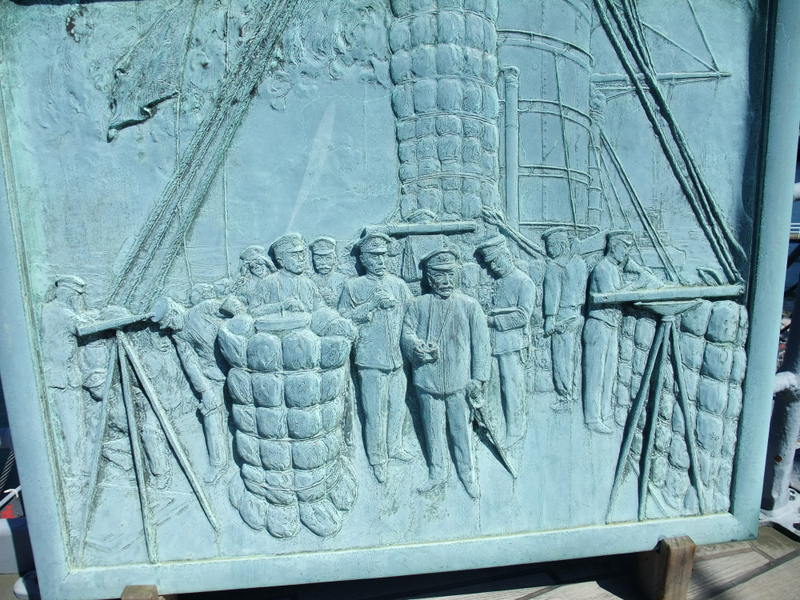The first picture shows the bridge of the Mikasa. I climbed up there. There was a copper plate that is in the second picture. This plate was made from a famous painting and it was exhibited inside. I'd like to have taken a picture of it, but it was prohibited. I found an illustration of the painting on the internet and am showing you it here. You can see some people in the illustration. The top four officials of the Mikasa are drawn in the center of the illustration. Their position on the deck was pointed out with four plates. The nxt three pictures are the instruction board and the plates. Picture no.4 is of Saneyuki Akiyama, who was from my hometown and was a hero on the sea. Picture no.1 is of Admiral Heihachirou Togo, who is one of the three greatest admirals in the world along with Admiral Nelson and John Paul Jones. The last picture is mine. I'm standing in the spot of Saneyuki Akiyama.
The title of the drama that I related in the last entry is "Saka no Ue no Kumo". My office is located in the center of the city. Nearby is the modernistic Saka no Ue no Kumo Museum, designed by Ando Tadao and dedicated to the novel "Clouds Over The Hill" by Shiba Ryotaro, which tells the story of the local Akiyama brothers and their roles in defeating the Russians in the Japanese-Russo War (1904-1905). A footnote to this conflict is the Russian Cemetery near Raigoji Temple with the graves of 98 Russian soldiers, of the around 6,000 Russian prisoners, who were held with a fair amount of freedom in Matsuyama. They could enjoy walking just about freely in the city and bathing at Dogo Onsen Spa, which was noted for the oldest hot spa in Japan. Some got married and started businesses. Russia was informed about this treatment and finally Russian soldiers got to shout "Matsuyama" when they waved the white flag. Though Russia took a few hundred thousand Japanese POWs into custody and they were treated inhumanely in Siberian labor camps, the Russian soldiers' cemetery has been kept clean and tidy for a hundred years by people from the neighborhood and the junior high school students nearby. I'd like the present Russian people to know this fact. The last five pictures are of the Russian cemetery.
(Vocabulary)
copper plate 銅板
wave the white flag 降伏する
Siberian labor camp シベリア抑留
inhumane
extremely cruel and causing unacceptable suffering:
the inhumane treatment of political prisoners
I was shocked by the inhumane conditions.
―inhumanely adv



Comments